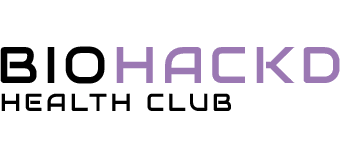What is Biohacking?
Biohacking is the practice of making incremental changes to one’s body, diet, and lifestyle to improve overall health and well-being. It involves applying principles from biology, genetics, neuroscience, and nutrition to enhance physical or mental performance, achieve specific health outcomes, or extend lifespan. Biohacking encompasses various methods, including:
- Dietary modifications: Optimizing nutrition through personalized diets, intermittent fasting, and targeted supplementation.
- Exercise and movement: Incorporating specific exercises, such as high-intensity interval training (HIIT), yoga, or meditation, to improve physical and mental performance.
- Sleep optimization: Regulating sleep patterns and environment to enhance recovery and cognitive function.
- Stress management: Implementing techniques like mindfulness, deep breathing, or progressive muscle relaxation to reduce stress and promote relaxation.
- Environmental manipulation: Adjusting exposure to light, sound, and temperature to optimize circadian rhythms and overall well-being.
- Supplements and nutrigenomics: Using targeted supplements and personalized nutrition plans based on genetic profiles to support health and wellness.
- Wearable technology and tracking: Utilizing devices and apps to monitor and optimize various physiological parameters, such as heart rate, blood glucose, and sleep quality.
Types of Biohacking
- Lifestyle biohacking: Making incremental changes to daily habits, such as exercise, diet, and sleep, to improve overall health.
- Do-it-yourself biology: Conducting experiments and self-experimentation to understand and optimize biological processes.
- Human enhancement: Using technology and supplements to enhance cognitive function, physical performance, or overall well-being.
- Regenerative biohacking: Focusing on regenerative medicine and cellular therapies to promote tissue repair and rejuvenation.
Notable Biohackers
- Dave Asprey: Founder of Bulletproof Coffee and a prominent biohacker, known for his advocacy of high-tech self-optimization.
- Tony Robbins: Motivational speaker and self-help author who has explored various biohacking techniques, including cryotherapy and red light therapy.
Criticisms and Controversies
- Lack of regulation: The biohacking community often operates outside traditional medical and scientific frameworks, raising concerns about safety and efficacy.
- Unproven claims: Some biohacking methods and products make unsubstantiated claims, which can be misleading or even harmful.
- Overemphasis on technology: Biohacking may prioritize high-tech solutions over more established, evidence-based approaches to health and wellness.
Conclusion
Biohacking is a rapidly evolving field that offers individuals a range of tools and techniques to optimize their health and well-being. While it has the potential to revolutionize personal health, it is essential to approach biohacking with a critical and informed mindset, recognizing both its benefits and limitations. By understanding the principles and practices of biohacking, individuals can make informed decisions about their own health and wellness journeys.
